
The best countryside writers and authors
Who is the best countryside writer? Why are they so great? Who are their peers and who makes the shortlist of the greatest countryside authors?
Exploring the tradition of countryside & nature writing
The ‘rural tradition’ of countryside, wildlife and outdoor living writing provides a rich heritage of literature, with natural history and rural lifestyle authors writing about why the countryside is so special.
With nature and natural history books experiencing resurgence in popularity – including traditional & classic countryside authors and contemporary modern-day naturalists, writers, bloggers and journalists – countryside author Fennel Hudson explores his favourite authors, writers and books.
From one countryside enthusiast to another, this is the definitive list of our greatest countryside, wildlife and nature writers, authors, books and how they’ve inspired us to explore and study the great outdoors.
Your favourite countryside & nature author?
At the end of the blog, you’re invited to comment by suggesting your favourite countryside author – the results of which will form a mini-series of Contented Countryman podcasts about our favourite countryside writers and authors.
How and why the best countryside authors and writers are so great
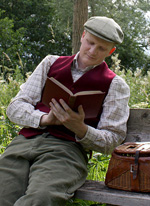 The greatest countryside authors and writers share a special affinity with wildlife and outdoor spaces. They’re able to capture something that immediately sets it, and us free. They exist in the slow lane of detailed, careful, heartfelt observation; their observations reflect upon us, highlighting our relationship with the outdoors and (as time passes since their books were written) revealing the gap that exists between modern living and urban places, and the connection we feel when returning to wild, natural, beautiful places.
The greatest countryside authors and writers share a special affinity with wildlife and outdoor spaces. They’re able to capture something that immediately sets it, and us free. They exist in the slow lane of detailed, careful, heartfelt observation; their observations reflect upon us, highlighting our relationship with the outdoors and (as time passes since their books were written) revealing the gap that exists between modern living and urban places, and the connection we feel when returning to wild, natural, beautiful places.
In creating and reading this list (which is suprisingly but unintentially male-dominated), we’re praising those who have captured the timeless essence of our natural world. (Specifically, those writing about the British countryside – thus John Muir and Henry Thoreau are exlcuded.) They’re not scientists seeking to unemotionally categorise species and natural resources, they’re poets crafting words that deliberately evoke emotion.
Note how many of these authors were soldiers, writing in-between and shortly after the World Wars, who were able to use the healing qualities of nature to recover from the battlefields. Also, look at how prolific some of these authors were in their lifetime, their passion for the countryside resulted in them producing more than a book a year. That’s their real skill: guiding us to places that we otherwise might never experience. Through their writing we see, hear, feel and connect. We’re more alive, and aware of the natural life around us, which enhances our appreciation of the natural world and our desire to live a more naturalistic life.
The best classic countryside authors and writers
Richard Jefferies (1848-87)
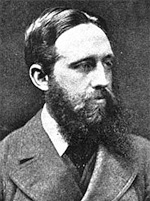 Born at Coate near Swindon in Wiltshire, Jefferies grew up on a small farm. This influenced his view of the natural world around him. Jefferies sensed and nurtured his intensity of feelings for the natural world, a cultivation that he describes in detail in his autobiography The Story of My Heart (1883). His success in conveying his awareness of nature and people within it, in fiction and non-fiction books, and especially in essay collections such as The Amateur Poacher (1879) and Round About a Great Estate (1880), cemented his reputation as one of our greatest countryside writers. Dogged by ill-health throughout his adult years, he eventually succumbed to tuberculosis and exhaustion at the young age of 38. But he wrote a phemomenal 19 books in his short lifetime and enough essays and material to produce a further 8 books after his death.
Born at Coate near Swindon in Wiltshire, Jefferies grew up on a small farm. This influenced his view of the natural world around him. Jefferies sensed and nurtured his intensity of feelings for the natural world, a cultivation that he describes in detail in his autobiography The Story of My Heart (1883). His success in conveying his awareness of nature and people within it, in fiction and non-fiction books, and especially in essay collections such as The Amateur Poacher (1879) and Round About a Great Estate (1880), cemented his reputation as one of our greatest countryside writers. Dogged by ill-health throughout his adult years, he eventually succumbed to tuberculosis and exhaustion at the young age of 38. But he wrote a phemomenal 19 books in his short lifetime and enough essays and material to produce a further 8 books after his death.
Best countryside books
- The Scarlet Shawl (1874)
- Restless Human Hearts (1875)
- World's End (1877)
- The Gamekeeper at Home (1878)
- Wild Life in a Southern County (1879)
- The Amateur Poacher (1879)
- Greene Ferne Farm (1880)
- Hodge and His Masters (1880)
- Round About a Great Estate (1880)
- Wood Magic (1881)
- Bevis: the Story of a Boy (1882)
- Nature Near London (1883)
- The Story of My Heart: An Autobiography (1883)
- Red Deer (1884)
- The Life of the Fields (1884)
- The Dewy Morn (1884)
- After London; Or, Wild England (1885)
- The Open Air (1885)
- Amaryllis at the Fair (1887)
- Field and Hedgerow; Being the Last Essays of Richard Jefferies (1889)
- The Toilers in the Field (1892)
- Jefferies' Land: A History of Swindon and its Environs, ed. G. Toplis (1896)
- The Hills and the Vale, collected and introduced by E. Thomas (1909)
- The Farmer's World: Richard Jefferies' Agricultural Journalism in the late 1870s.
Favourite quotes
- “It is eternity now. I am in the midst of it. It is about me in the sunshine; I am in it as the butterfly in the light-laden air. Nothing has to come; it is now. Now is eternity; now is the immortal life.” From Story of My Heart.
- “Let us get of these indoor narrow modern days, whose twelve hours somehow have become shortened, into the sunlight and the pure wind. A something that the ancients thought divine can be found and felt there still.” From The Amateur Poacher.
BB (Denys Watkins-Pitchford) (1905-90)
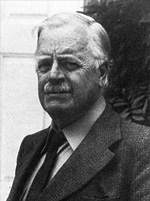 As a child, Watkins-Pitchford spent a great deal of time on his own, wandering through the fields near to his Northamptonshire home, developing a love of the outdoors. This was to influence his writing and artwork in later life. A writer and illustrator, he began his writing career while working as Art Master at Rugby School. He contributed regularly to the Shooting Times, writing under the pseudonym 'BB' – the size of lead shot used to shoot geese – but used his real name for his illustrations and paintings. A prolific author and illustrator, he wrote and illustrated 59 books of his own and illustrated more than 30 books for other authors.
As a child, Watkins-Pitchford spent a great deal of time on his own, wandering through the fields near to his Northamptonshire home, developing a love of the outdoors. This was to influence his writing and artwork in later life. A writer and illustrator, he began his writing career while working as Art Master at Rugby School. He contributed regularly to the Shooting Times, writing under the pseudonym 'BB' – the size of lead shot used to shoot geese – but used his real name for his illustrations and paintings. A prolific author and illustrator, he wrote and illustrated 59 books of his own and illustrated more than 30 books for other authors.
Best countryside books
- Wild Lone: The Story of a Pytchley Fox (1938)
- Manka, the Sky Gypsy: The Story of a Wild Goose (1939)
- The Countryman's Bedside Book (1941)
- The Idle Countryman (1943)
- Brendon Chase (1944)
- The Wayfaring Tree (1945)
- Letters from Compton Deverell (1950)
- Tide's Ending (1950)
- Dark Estuary (1953)
- Alexander (1957)
- Ben the Bullfinch (1957)
- Autumn Road to the Isles (1959)
- The White Road Westwards (1961)
- September Road to Caithness (1962)
- Lepus the Brown Hare (1962)
- The Pegasus Book of the Countryside (1964)
- Summer Road to Wales (1964)
- A Summer on the Nene (1967)
- A Child Alone (1978)
- Ramblings of a Sportsman-Naturalist (1979)
- The Naturalist's Bedside Book (1980)
- The Quiet Fields (1981)
- Indian Summer (1984)
Favourite quote
- “I would wish for at least two hundred years of youth and health to enjoy the things I do...I know that the things I prize most in the world, the woods and fields, rivers and streams, the procession of the season from minute to minute and month to month and year to year, with all the changes that they bring to the land I love so much, these things, I say, are among the best experiences in the world, if we couple them with a happy home life and children of one's body." From Letters from Compton Deverell.
W.H. Hudson (1844-1922)
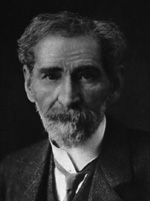 Hudson was born in Quilmes, near Buenos Aires, Argentina to English and Irish parents. He moved to London, England, in 1874. He produced a series of ornithological studies (and became a founder of The Royal Society for the Protection of Birds) before achieving fame with his books on the English countryside, including Hampshire Days (1903), Afoot in England (1909) and A Shepherd's Life (1910), which helped foster the back-to-nature movement of the 1920s and 1930s. His most famous book is Far Away and Long Ago (1918), which was made into a film.
Hudson was born in Quilmes, near Buenos Aires, Argentina to English and Irish parents. He moved to London, England, in 1874. He produced a series of ornithological studies (and became a founder of The Royal Society for the Protection of Birds) before achieving fame with his books on the English countryside, including Hampshire Days (1903), Afoot in England (1909) and A Shepherd's Life (1910), which helped foster the back-to-nature movement of the 1920s and 1930s. His most famous book is Far Away and Long Ago (1918), which was made into a film.
Best countryside books
- The Purple Land that England Lost: Travels and Adventures in the Banda Oriental, South America (1885)
- A Crystal Age (1887)
- Argentine Ornithology (1888)
- The Naturalist in la Plata (1892)
- Idle Days in Patagonia (1893)
- Birds in a Village (1893
- Lost British Birds (1894
- British Birds (1895)
- Osprey; or, Egrets and Aigrettes (1896)
- Birds in London (1898)
- Nature in Downland (1900)
- Birds and Man (1901)
- El Ombú (1902)
- Hampshire Days (1903)
- Green Mansions: A Romance of the Tropical Forest (1904)
- A Little Boy Lost (1905)
- Land's End. A Naturalist's Impressions in West Cornwall (1908)
- Afoot in England (1909)
- A Shepherd's Life: Impressions of the South Wiltshire Downs (1910)
- Adventures Among Birds (1913
- Tales of the Pampas (1916)
- Far Away and Long Ago - A History of My Early Life (1918)
- The Book of a Naturalist (1919)
- Birds in Town and Village (1919)
- Birds of La Plata (1920)
- Dead Man's Plack and An Old Thorn (1920)
- A Traveller in Little Things (1921)
- Tired Traveller (1921)
- Seagulls In London. Why They Took To Coming To Town (1922)
- Hind in Richmond Park (1922)
- Rare Vanishing & Lost British Birds (1923)
- Men, Books and Birds (1925
Favourite quotes
- “The blue sky, the brown soil beneath, the grass, the trees, the animals, the wind, and rain, and stars are never strange to me; for I am in and of and am one with them; and my flesh and the soil are one, and the heat in my blood and in the sunshine are one, and the winds and the tempests and my passions are one. I feel the 'strangeness' only with regard to my fellow men, especially in towns, where they exist in conditions unnatural to me, but congenial to them...In such moments we sometimes feel a kinship with, and are strangely drawn to, the dead, who were not as these; the long, long dead, the men who knew not life in towns, and felt no strangeness in sun and wind and rain.” From Hampshire Days.
- "The British boy suffers the greatest restraint during the period when the call of nature, the instincts of play and adventure, are most urgent. Naturally, he looks eagerly forward to the time of escape, which he fondly imagines will be when his boyhood is over and he is free of masters.” From Far Away and Long Ago.
Francis Kilvert (1840-79)
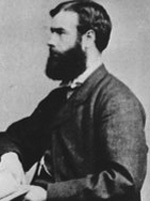 Born near Chippenham in Wiltshire, not far from the home of Richard Jefferies, Kilvert was an English clergyman who spent most of his adult life in the Welsh Marches between Hereford and Hay-on-Wye. His diaries reflected rural life in the 1870s. They were not published until fifty years after his death when, in the wake of bombings and rationing in World War II, they provided escapism back to the simpler and happier times of the mid Victorian era, still just within living memory.
Born near Chippenham in Wiltshire, not far from the home of Richard Jefferies, Kilvert was an English clergyman who spent most of his adult life in the Welsh Marches between Hereford and Hay-on-Wye. His diaries reflected rural life in the 1870s. They were not published until fifty years after his death when, in the wake of bombings and rationing in World War II, they provided escapism back to the simpler and happier times of the mid Victorian era, still just within living memory.
Best countryside book
- Kilvert's Diary, 1870-79 (1944)
Favourite quote
- "As I went across the fields and by the side of the winding Allington brook and looked back up at the dear old white house upon the hill, backed by the dark mass of the trees in the wilderness and over-towered by the cupola of the bright green ivied church, and saw the brown and grey farm buildings nestling warm and sheltered at the foot of the hill, my heart rose up and went out towards my old sweet house, and the tears came into my eyes as a thousand sweet and happy memories swept across my soul." From Kilvert's Diary.
C. Henry Warren (1895-66)
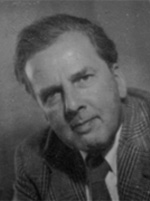 Clarence Henry Warren was an author and radio broadcaster on the English countryside. Previously Assistant Editor of Radio Times, he became a freelance writer and author in 1932 and remained so until his death. Described in The Times newspaper as "The Richard Jefferies of the 20th century", he was known for his contentment in the life of the countryside and a passionate concern for the future of rural England.
Clarence Henry Warren was an author and radio broadcaster on the English countryside. Previously Assistant Editor of Radio Times, he became a freelance writer and author in 1932 and remained so until his death. Described in The Times newspaper as "The Richard Jefferies of the 20th century", he was known for his contentment in the life of the countryside and a passionate concern for the future of rural England.
Best countryside books
- A Cotswold Year (1936)
- A Boy In Kent (1937)
- West Country. Somerset, Devon and Cornwall (1938)
- The Happy Countryman (1939)
- Corn Country (1940)
- England Is a Village (1940)
- The Land Is Yours (1943)
- Miles From Anywhere (1944)
- The Good Life (1946)
- Adam Was a Ploughman (1947)
- English Cottages and Farm-Houses (1948)
- Essex: the County Book (1950)
- Content With What I Have (1967)
Favourite quote
- Quoting a farm worker: “They say times are better now, with less work and more pay. They say we worked so hard and so long that we hadn’t any time left to enjoy ourselves. I dunno so much about that. Why, in them days, after ten or twelve hours’ scything in the harvest fields, you’d hear men go home at night singing; and it weren’t always for the beer inside ‘em either!.”
Gilbert White (1720-93)
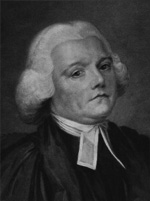 Gilbert White was a pioneering English naturalist and ornithologist who became known as the 'parson-naturalist'. He was Dean of Oriel College, Oxford, and is regarded as being England's first ecologist. He is best known for his book The Natural History and Antiquities of Selborne, presented as a compilation of his letters to Thomas Pennant, the leading British zoologist of the day, and the Hon. Daines Barrington, an English barrister and another Fellow of the Royal Society.
Gilbert White was a pioneering English naturalist and ornithologist who became known as the 'parson-naturalist'. He was Dean of Oriel College, Oxford, and is regarded as being England's first ecologist. He is best known for his book The Natural History and Antiquities of Selborne, presented as a compilation of his letters to Thomas Pennant, the leading British zoologist of the day, and the Hon. Daines Barrington, an English barrister and another Fellow of the Royal Society.
Best countryside book
- The Natural History and Antiquities of Selborne (1789)
Favourite quote
- “Earthworms, though in appearance a small and despicable link in the chain of nature, yet, if lost, would make a lamentable chasm.”
Henry Williamson (1895-1977)
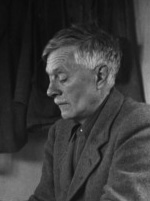 Henry Williamson was an Englishman who fought in and survived the First World War. After returning home from the atrocities, he recovered by reading Richard Jefferies' book The Story of My Heart. This inspired him to begin writing seriously about wildlife, English social history and Ruralism. He published more than 50 books in his lifetime. He was awarded the Hawthornden Prize for literature in 1928 for his book Tarka the Otter.
Henry Williamson was an Englishman who fought in and survived the First World War. After returning home from the atrocities, he recovered by reading Richard Jefferies' book The Story of My Heart. This inspired him to begin writing seriously about wildlife, English social history and Ruralism. He published more than 50 books in his lifetime. He was awarded the Hawthornden Prize for literature in 1928 for his book Tarka the Otter.
Best countryside books
- The Beautiful Years (1921)
- The Lone Swallows (1922)
- Dandelion Days (1922)
- The Peregrine's Saga, and Other Stories of the Country Green (1923)
- The Old Stag (1926)
- Tarka the Otter (1927)
- The Pathway (1928)
- The Ackymals (1929)
- The Village Book (1930)
- The Labouring Life (1932)
- The Wild Red Deer of Exmoor (1931)
- On Foot in Devon (1933)
- Devon Holiday (1935)
- Salar the Salmon (1935)
- Goodbye West Country (1937)
- The Children of Shallowford (1939)
- The Story of a Norfolk Farm (1941)
- As the Sun Shines (1941)
- Life in A Devon Village (1945)
- Tales of a Devon Village (1945)
- The Sun in the Sands (1945)
- The Phasian Bird (1948)
- The Scribbling Lark (1949)
- The Dark Lantern (1951)
- Donkey Boy (1952)
- Tales of Moorland and Estuary (1953)
- How Dear Is Life (1954)
- A Fox Under My Cloak (1955)
- A Clearwater Stream (1958)
- Love and the Loveless (1958)
- In The Woods, a biographical fragment (1960)
- The Innocent Moon (1961)
Favourite quote
- “When the bees’ feet shake the bells of the heather, and the ruddy strings of the sap-stealing dodder are twined about the green spikes of the furze, it is summertime on the commons. Exmoor is the high country of the winds, which are to the falcons and the hawks: clothed by whortleberry bushes and lichens and ferns and mossed trees in the goyals, which are to the foxes, the badgers, and the red deer: served by rain-clouds and drained by rock-littered streams, which are to the otters." - From Tarka the Otter.
John Stewart Collis (1900-84)
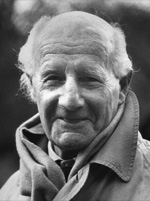 Biographer, rural author, and pioneer of the ecology movement, John Stewart Collis is best known for his book The Worm Forgives the Plough, a combination of his books While Following the Plough (1946) based on his wartime experience working in the Land Army in the Second World War, and Down to Earth (1947) of a year working in woodland.
Biographer, rural author, and pioneer of the ecology movement, John Stewart Collis is best known for his book The Worm Forgives the Plough, a combination of his books While Following the Plough (1946) based on his wartime experience working in the Land Army in the Second World War, and Down to Earth (1947) of a year working in woodland.
Best countryside books
- Forward to Nature (1927)
- While Following the Plough (1946)
- Down to Earth (1947)
- The Triumph of the Tree (1950)
- The Moving Waters (1955)
Favourite quote
- “And like any dog, like any savage, I lay there enjoying myself, harming no man, selling nothing, competing not at all, thinking no evil, smiled on by the sun, bent over by the trees, and softly folded in the arms of the earth.”
John Clare (1793-1864)
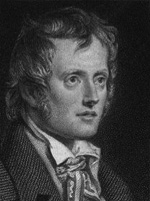 John Clare was an English poet, the son of a farm labourer, who became known for his celebrations of the English countryside and sorrows at its disruption. He is described as "the greatest labouring-class poet that England has ever produced. No one has ever written more powerfully of nature, of a rural childhood, and of the alienated and unstable self".
John Clare was an English poet, the son of a farm labourer, who became known for his celebrations of the English countryside and sorrows at its disruption. He is described as "the greatest labouring-class poet that England has ever produced. No one has ever written more powerfully of nature, of a rural childhood, and of the alienated and unstable self".
Best countryside books
- Poems Descriptive of Rural Life and Scenery. (1820)
- The Village Minstrel, and Other Poems. (1821)
- The Shepherd's Calendar with Village Stories and Other Poems. (1827)
- The Rural Muse. (1835)
- Sonnet. (1841)
Favourite quote
- “Crowded places, I shunned them as noises too rude; And fled to the silence of sweet solitude.”
Other classic countryside authors and writers to explore
You might also wish to read work by the following authors who've written about nature, wildlife, the outdoors, landscape, countryside, and the rural tradition of country living:
- Jack Hargreaves (Out of Town, 1987; The Old Country, 1988; The New Forest, 1992)
- William Cobett (Rural Rides, 1830)
- George Borrow (Wild Wales, 1862)
- George Sturt (Bourne) (The Wheelwright's Shop, 1923)
- Edward Thomas (In Pursuit of Spring, 1914)
- H.J. Massingham (The Golden Age: The Story of Human Nature, 1927)
- John Moore (The Countryman's England, 1939)
- H.E. Bates (Through the Woods: April to April, 1936)
- Sir William Beech Thomas (The Way of a Countryman, 1944)
- J.W. Robertson Scott (England's Green and Pleasant Land, 1925)
- Alfred Williams (Songs in Wiltshire, 1909)
- A.G. Street (Farmer's Glory, 1932)
- George Ewart Evans (Ask the Fellows who Cut the Hay, 1956)
- Adrian Bell (Corduroy, 1930)
- Ronald Blythe (Akenfield: Portrait of an English Village, 1969)
- Edmund Blunden (The Shepherd, 1922)
The best contemporary countryside authors and writers
The best modern-day countryside authors and writers continue the tradition of capturing the ever-dwindling natural world. Their writing, given its modern context, highlights how times have changed – especially how pressure on the environment and us (and because of us) has increased. At a time when we need Nature more than ever, their writing is a call to action – heard in the quiet places that should never have become so quiet.
Roger Deakin (1943-2006)
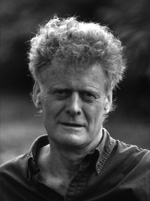 Roger Deakin was an English writer, environmental documentary-maker and broadcaster. He founded the arts/environmental organisation Common Ground in 1982. Among his environmental causes, he worked to preserve woodland, ancient rights of way and coppicing techniques. His book Waterlog, the only one published in his lifetime, is a classic which topped the UK best seller charts and founded the wild swimming movement.
Roger Deakin was an English writer, environmental documentary-maker and broadcaster. He founded the arts/environmental organisation Common Ground in 1982. Among his environmental causes, he worked to preserve woodland, ancient rights of way and coppicing techniques. His book Waterlog, the only one published in his lifetime, is a classic which topped the UK best seller charts and founded the wild swimming movement.
Best countryside books
- Waterlog: A Swimmer's Journey Through Britain. (1999)
- Wildwood: A Journey Through Trees. (2007)
- Notes From Walnut Tree Farm. (2008)
Favourite quote
- “Most of us live in a world where more and more places and things are signposted, labelled, and officially 'interpreted'. There is something about all this that is turning the reality of things into virtual reality.” – From Waterlog.
Robert Macfarlane (1976-)
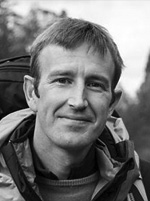 A friend of Roger Deakin, Robert Macfarlane continues the tradition of writing about landscape, place, people, travel, language and nature. A multi-award winnng author, he's also Fellow of Emmanuel College, Cambridge.
A friend of Roger Deakin, Robert Macfarlane continues the tradition of writing about landscape, place, people, travel, language and nature. A multi-award winnng author, he's also Fellow of Emmanuel College, Cambridge.
Best countryside books
- Mountains of the Mind: A History of a Fascination (2003)
- The Wild Places (2007)
- The Old Ways: A Journey on Foot (2012)
- Holloway (2013)
- Landmarks (2015)
- Underland: A Deep-Time Journey (2019)
Favourite quote
- “There is no mystery in this association of woods and otherworlds, for as anyone who has walked the woods knows, they are places of correspondence, of call and answer. Visual affinities of colour, relief and texture abound. A fallen branch echoes the deltoid form of a streambed into which it has come to rest. Chrome yellow autumn elm leaves find their colour rhyme in the eye-ring of the blackbird. Different aspects of the forest link unexpectedly with each other, and so it is that within the stories, different times and worlds can be joined.” - From The Wild Places.
John Lewis-Stempel (1958-)
 John Lewis-Stempel is a prolific author (writing countryside books under his own name, and more than 100 military history and fiction books under the pen name Jon E. Lewis), past-journalist with The Sunday Express, and columnist for Country Life. He left London for a rural life on a farm in Herefordshire where he writes his nature and outdoors books.
John Lewis-Stempel is a prolific author (writing countryside books under his own name, and more than 100 military history and fiction books under the pen name Jon E. Lewis), past-journalist with The Sunday Express, and columnist for Country Life. He left London for a rural life on a farm in Herefordshire where he writes his nature and outdoors books.
Best countryside books
- The Wild Life: A Year of Living on Wild Food (2010)
- Foraging, The essential guide to wild food (2012)
- Meadowland: The Private Life of an English Field (2014)
- The Running Hare: The Secret Life of Farmland (2016)
- The Secret Life of the Owl (2017)
- The Wood: The Life and Times of Cockshutt Wood (2018)
- The Glorious Life of the Oak (2018)
- Still Water: The Deep Life of the Pond (2019)
Favourite quote
- "High summer and one can hear the universe; so overwhelming is the accumulated sound of growing in the meadow and in hedges, of pollen being released, of particles moving in the heat, that all the minute motions together create a continuous him: the sound of summer." – From Meadowland.
Richard Mabey (1941-)
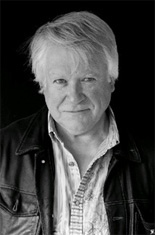 Richard Mabey is a writer and broadcaster, chiefly on the relations between nature and culture. Educated at Oxford, he worked as Senior Editor at Penguin Books before becoming a full-time writer in 1974 followng the success of his classic foraging book Food for Free. He spent a large part of his life living in, and writing about, the Chiltern Hills, but now lives and writes in Norfolk.
Richard Mabey is a writer and broadcaster, chiefly on the relations between nature and culture. Educated at Oxford, he worked as Senior Editor at Penguin Books before becoming a full-time writer in 1974 followng the success of his classic foraging book Food for Free. He spent a large part of his life living in, and writing about, the Chiltern Hills, but now lives and writes in Norfolk.
Best countryside books
- Food for Free (1972)
- The Unofficial Countryside (1973)
- Plants with a Purpose (1977)
- The Roadside Wildlife Book (1978)
- The Common Ground: A Place for Nature in Britain's Future? (1980)
- Back to the Roots (1983)
- In a Green Shade (1983)
- The Frampton Flora (1985)
- The New Age Herbalist (1988)
- The Flowers of May (1990)
- Home Country (1990)
- A Nature Journal (1991)
- The Wildwood, The: In Search of Britain's Ancient Forests (1993)
- Whistling in the Dark: In Pursuit of the Nightingale (1993)
- Landlocked: In Pursuit of the Wild (1994)
- Flora Britannica (1996)
- The Flora of Hampshire (1996)
- Country Matters: Selected Writings (1999)
- Nature Cure (2005)
- Fencing Paradise: The Uses And Abuses Of Plants (2006)
- Beechcombings: The Narratives of Trees (2007)
- A Brush with Nature (2010)
- Weeds: The Story of Outlaw Plants (2010)
- The Barley Bird: Notes on the Suffolk Nightingale (2010)
- The Perfumier and the Stinkhorn (2011)
- Turned Out Nice Again: On Living With the Weather (2013)
- The Ash and the Beech: The Drama of Woodland Change (2013)
- The Cabaret of Plants: Forty Thousand Years of Plant Life and the Human Imagination (2016)
Favourite quote
- “To be without trees would, in the most literal way, to be without our roots.” – From Beechcombings.
Paul Evans
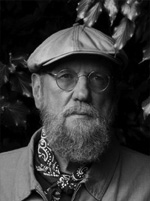 Paul Evans is a naturalist, radio broadcaster, playwright and poet. He worked for many years as a gardener before becoming a lecturer in creative writing. As Country Diarist for The Guardian for more than 20 years, he lives and writes on Wenlock Edge in Shropshire.
Paul Evans is a naturalist, radio broadcaster, playwright and poet. He worked for many years as a gardener before becoming a lecturer in creative writing. As Country Diarist for The Guardian for more than 20 years, he lives and writes on Wenlock Edge in Shropshire.
Best countryside books
- Field Notes from The Edge (2015)
- How to See Nature (2018)
Favourite quote
- “I take the path from the main road at the top of the dingle which begins in a tangle of nettle and bramble at a broken stile. As with ancient processional ways through the land walked by ancestors practising religious rites, the path is a preparation for a different way of thinking about and experiencing the world.” – From Field Notes from the Edge.
The best female countryside writers and authors
The lists above are fairly established views of the nature writers that have amassed the most respected bodies of work. But they're all men. How can this be?
I'm all for diversity and fairplay, so have identified my favourite female nature writers too. Some are well known, others are less so; but they all capture the wonderment of the outdoors with sensitivity that – it could be argued – is uniquely feminine.
The best female countryside and nature writers
- Nan Shepherd (The Living Mountain, 1977)
- Rachel Carson (Silent Spring, 1961)
- Edith Holden (The Country Diary of an Edwardian Lady, 1977)
- Robin Wall Kimmerer (Gathering Moss, 2003)
- Helen MacDonald (H is for Hawk, 2014)
- Andrea Wulff (The Invention of Nature, 2015)
- Melissa Harrison (Rain: Four Walks in English Weather, 2016)
- Amy Liptrot (Outrun, 2015)
- Mary Russell-Mitford (Our Village, 1824)
- Flora Thompson (Lark Rise to Candleford, 1945)
- Kathleen Jamie (Findings, 2005)
- Susan Hill (The Magic Apple Tree: A Country Year, 1982)
- Alice Oswald (Woods etc., 2005)
- Olivia Laing (To the River, 2011)
Vote for the greatest!
Who, in your opinion, is the best countryside writer of all time? Use the form below to comment. The results of which will shape a mini-series of The Contented Countryman podcasts where we’ll reveal our Top 10 Countryside Authors.
Have we missed anyone? Let us know in the comments box below if there's a significant countryside and nature author who should feature on the list.
 If you like this blog, and the work of countryside author Fennel Hudson, you might like his books Nature Escape and The Quiet Fields.
If you like this blog, and the work of countryside author Fennel Hudson, you might like his books Nature Escape and The Quiet Fields.Please also subscribe to Fennel on Friday, where you'll receive via email a blog, video or podcast from Fennel in time for the weekend.



